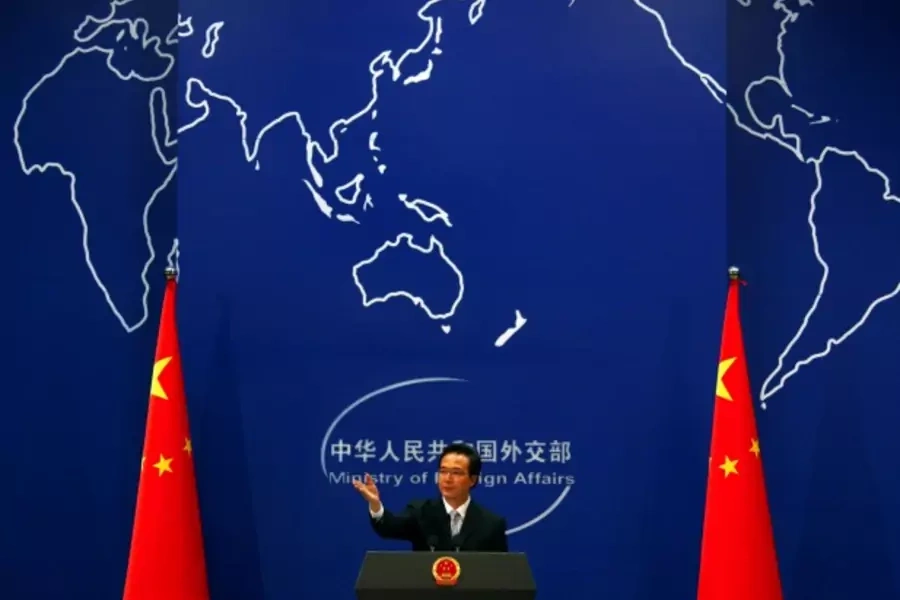Banging Your Head Against A Wall: China Shrugs at U.S. Criticism of Censorship

More on:
Diplomacy and International Institutions
Lincoln Davidson is a research associate for Asia Studies at the Council on Foreign Relations.
Last week, the U.S. government claimed that the Chinese government’s Internet censorship system, colloquially known as the Great Firewall, is a barrier to trade. In its annual National Trade Estimate Report, the United States Trade Representative’s (USTR) office stated that “China’s filtering of cross-border Internet traffic has posed a significant burden to foreign suppliers,” a fairly strong statement.
The report also notes that the situation “appears to have worsened over the past year” and that eight of the twenty-five highest traffic websites are now blocked in China. Another six are websites owned by Chinese companies, which speaks to the size of the Chinese Internet. And, as most of those, such as Baidu, Sina Weibo, and Tencent QQ, are direct competitors of the blocked U.S. sites, it also demonstrates the effectiveness of China’s censorship system in creating an ecosystem that allows Chinese tech companies to flourish.
The USTR report made a big splash, but it’s nothing new. Foreign firms have been saying as much about the Great Firewall for years. In 2008, Nicole Wong, then-deputy general counsel for Google, testified before the Senate Judiciary Committee that “government-sponsored censorship is one of the largest barriers to … access to Internet-based services—with serious implications for trade and human rights.” Then in 2011, USTR filed a formal request for clarification of the rules governing online censorship with the Chinese government. It’s not clear if the Chinese government ever responded, but including accusations that the Great Firewall hinders trade in a formal report was the logical next step for USTR.
Over at ChinaFile, Bethany Allen-Ebrahimian and Susan Shirk debate the merits of the USTR statement. Shirk points out that there aren’t many tools foreign governments can draw on to improve the human rights situation in China and praises the Obama administration for calling the Chinese government out. Allen-Ebrahimian frames the accusation as the latest move by the U.S. government to promote its position that the Internet should be “open, interoperable, secure, and reliable,” and warns that further steps to conflate censorship and trade barriers risks legitimizing censorship that falls short of the level that the World Trade Organization (WTO) defines as a barrier to trade. While the White House isn’t likely to elevate the USTR accusation to the level of a WTO case before President Obama leaves office, the strong position some of the presidential candidates have taken in opposition to Chinese trade practices makes it entirely possible that a future administration would.
Somewhat surprisingly, the official Chinese response to the statement has been very muted, consisting only of a brief exchange between a reporter and Chinese foreign ministry spokesman Hong Lei:
Reporter: According to reports, the office of the United States Trade Representative released a report claiming that the Chinese Great Firewall and censorship system form a barrier to international trade activity. What is your response to this?Hong: The Chinese Internet is developing vigorously and provides a vast development space for firms from every country. China’s policy of attracting foreign investment will not change, our policy of protecting the legal rights of foreign companies in China will not change, and our policy of creating a favorable operating environment for foreign companies in China will not change. We hope that every country respects other countries’ choice of Internet development path, management methods, and public policy, as well as their right to participate in international Internet governance.
Given the directness of the USTR statement, this response is pretty tame, although an editorial published in both English and Chinese this weekend by the Global Times editorial board takes a much harder line on Western criticism of the Great Firewall. The Global Times writes that “the Great Firewall quelled Western intentions to penetrate China ideologically … History will positively assess the key role of the system.” It’s worth keeping in mind, however, that the Global Times is known for its strident, populist tone, and its editorials should not be taken as the official position of the Chinese government. (Just last week, Global Times editor-in-chief Hu Xijin had a spat with a former Chinese ambassador to France.)
The muted response to the trade barrier charge should also be placed in the context of how the Chinese government replied to the U.S. Department of Justice’s indictment in 2014 of five PLA officers who allegedly hacked U.S. companies. The Chinese Ministry of Foreign Affairs, Ministry of Defense, and State Internet Information Office (the forerunner of the Cyberspace Administration of China), all posted lengthy responses online. The Ministry of Foreign Affairs also summoned U.S. Ambassador to China Max Baucus to officially protest the indictment.
There’s little the United States government can do to change China’s censorship of the Internet within its own borders, so this is just a matter of signaling. To the international audience, the Obama administration is continuing to push its preferred norm of an open Internet. To its domestic audience, the administration is signaling that it recognizes the concerns of U.S. companies who operate (or want to operate) in China and wants to do something. But in the end, by including the language on Chinese Internet censorship in the USTR report, the administration is banging its head against a (great) wall.
More on:
Diplomacy and International Institutions
 Online Store
Online Store